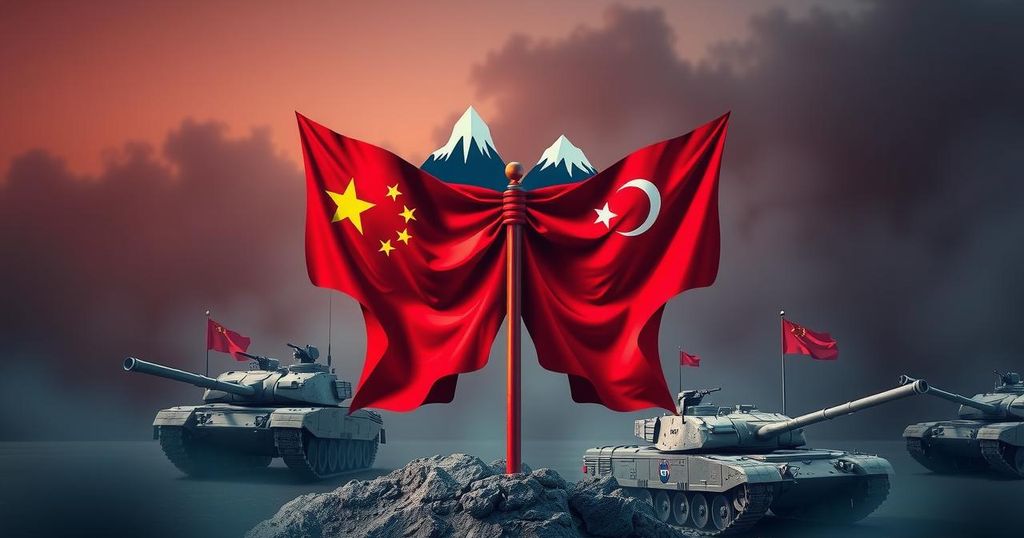North Korea’s Kim Jong Un Pledges Unconditional Support for Russia’s Ukraine War

North Korean leader Kim Jong Un pledged “unconditional support” for Russia’s war against Ukraine during talks with Russian official Sergei Shoigu in Pyongyang. This meeting highlighted a growing collaboration, with North Korean troops previously deployed to assist Russia in the conflict. The partnership raises concerns about military and technological exchanges that could enhance North Korea’s nuclear capabilities.
North Korean leader Kim Jong Un recently indicated a strong alliance with Russia, stating that his country will “unconditionally support” Moscow’s ongoing war against Ukraine. This declaration came during a meeting with Russian Security Council Secretary Sergei Shoigu in Pyongyang, as reported by North Korea’s state media on Thursday. This latest move reflects a deepening cooperation between the two nations amid the ongoing conflict in Ukraine.
In earlier developments, back in April, it was confirmed that North Korean troops had made their way to Russia for the first time. Both nations announced that their soldiers were actively collaborating to counter a Ukrainian advance into Russia’s Kursk border region. That month, Russian President Vladimir Putin publicly expressed gratitude toward North Korea for its support, vowing to remember their sacrifices in this fight.
During the recent discussions, Kim affirmed North Korea’s unwavering endorsement of Russia’s stances in significant international political arenas, particularly surrounding the crisis in Ukraine. Reports from the Korean Central News Agency confirmed the basis of their talks revolved around strengthening their strategic partnership, touching on the Ukrainian issue, as well as other unnamed global matters, but no specifics were provided.
Additionally, Russia’s state media agency, Tass, reported that Shoigu and Kim considered how to rebuild the Kursk region and honor the contributions of North Korean troops. Notably, while Russia maintains that it regained control of the Kursk area in April 2025, Ukrainian officials dispute this, asserting that their forces remain active in the region, as reiterated by Ukraine’s army chief Oleksandr Syrskyi last Saturday.
Shoigu’s last visit to North Korea was in March, indicating an ongoing dialogue between the two leaders. The exact number of North Korean soldiers in Russia hasn’t been disclosed by either side. However, intelligence estimates suggest North Korea deployed between 10,000 to 12,000 troops to Russia last fall, marking its first participation in a significant armed conflict since the Korean War. More recently, South Korean officials have noted that around 3,000 additional troops were sent early this year.
Besides troop deployments, North Korea has been funneling a substantial supply of conventional weapons to Russia. In return, South Korean and U.S. intelligence sources anticipate that Russia is offering economic and military aid to North Korea. There’s growing concern that Russia might also export advanced technologies to assist North Korea in bolstering its nuclear weapons capabilities, a move that would further unsettle the regional balance of power.
In conclusion, Kim Jong Un’s recent commitment to support Russia in its war with Ukraine highlights a marked shift towards closer ties between North Korea and Russia. This evolving relationship involves troop deployments and military supplies, raising international concerns about a potential escalation in military cooperation and nuclear technology transfer between the two nations. Such developments warrant close observation by global powers, particularly given the implications for regional stability in East Asia.
Original Source: abcnews.go.com







